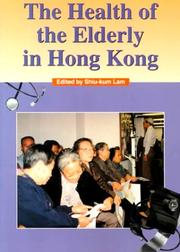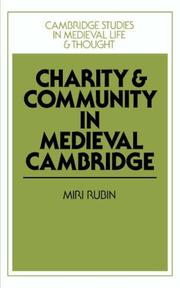| Listing 1 - 10 of 206 | << page >> |
Sort by
|
ISBN: 365770485X Year: 2021 Publisher: Paderborn, Germany : Ferdinand Schöningh,
Abstract | Keywords | Export | Availability | Bookmark
 Loading...
Loading...Choose an application
- Reference Manager
- EndNote
- RefWorks (Direct export to RefWorks)
In recent years, there has been significant scholarly focus on John Chrysostom's appropriation of ancient psychagogy, demonstrating that he was a skilled Christian physician of the soul who sought to promote the somatic and psychological health of his congregation by proposing preaching and various ascetic disciplines as medical treatments. In these studies, however, relatively little attention has been devoted to his use of philosophical therapy in relation to almsgiving. To address this, this book aims to take a closer look at Chrysostom's view of almsgiving and soul therapy within the context of ancient philosophical therapy. Ancient philosophers identified passions (πάθη), desires, and distorted thought as the diseases of the soul and developed various kinds of cognitive and behavioural remedies to cure these. Adopting an interdisciplinary approach between Greco-Roman philosophy and social ethics in early Christianity, particularly in the tradition of the Greek Fathers, what follows pursues a giver-centered analysis which has largely been ignored in the previous receiver-oriented research.
Theology. --- Christianity. --- Christianity --- Religions --- Church history --- Christian theology --- Theology --- Theology, Christian --- Religion --- Charity. --- Alms and almsgiving --- Conduct of life
Book
ISBN: 9782918975403 9782873566753 2918975400 2873566752 Year: 2015 Volume: 567 Publisher: paris: Vie chrétienne,
Abstract | Keywords | Export | Availability | Bookmark
 Loading...
Loading...Choose an application
- Reference Manager
- EndNote
- RefWorks (Direct export to RefWorks)
Alms and Almsgiving --- Amour du prochain --- Charity --- Charité --- Liefdadigheid --- C1 --- geloof --- theologie --- Kerken en religie --- Spirituality --- Catholic Church --- Handbooks, manuals, etc.
Book
ISBN: 0804782083 9780804782081 9780804770019 9780804770026 0804770018 0804770026 Year: 2012 Publisher: Stanford, Calif. : Stanford University Press,
Abstract | Keywords | Export | Availability | Bookmark
 Loading...
Loading...Choose an application
- Reference Manager
- EndNote
- RefWorks (Direct export to RefWorks)
While most people would not consider sponsoring an orphan's education to be in the same category as international humanitarian aid, both acts are linked by the desire to give. Many studies focus on the outcomes of humanitarian work, but the impulses that inspire people to engage in the first place receive less attention. Disquieting Gifts takes a close look at people working on humanitarian projects in New Delhi to explore why they engage in philanthropic work, what humanitarianism looks like to them, and the ethical and political tangles they encounter. Motivated by debates surrounding Marcel Mauss's The Gift, Bornstein investigates specific cases of people engaged in humanitarian work to reveal different perceptions of assistance to strangers versus assistance to kin, how the impulse to give to others in distress is tempered by its regulation, suspicions about recipient suitability, and why the figure of the orphan is so valuable in humanitarian discourse. The book also focuses on vital humanitarian efforts that often go undocumented and ignored and explores the role of empathy in humanitarian work.
Charity. --- Hindu giving. --- Humanitarianism --- Philanthropists --- Altruists --- Humanitarians --- Benefactors --- Human welfare --- Philanthropy --- Social welfare --- Charities --- Ethics --- Giving, Hindu --- Charity --- Alms and almsgiving --- Conduct of life
Book
ISBN: 1433650312 9781433650314 Year: 2017 Publisher: Nashville, Tennessee : B&H Publishing Group,
Abstract | Keywords | Export | Availability | Bookmark
 Loading...
Loading...Choose an application
- Reference Manager
- EndNote
- RefWorks (Direct export to RefWorks)
Christian stewardship. --- Money --- Finance, Personal --- Charity. --- Alms and almsgiving --- Conduct of life --- Christian stewardship --- Stewardship, Christian --- Christian life --- Religious aspects --- Christianity.
Book
ISBN: 9780300183733 0300183739 9780300181333 0300181337 9780300198836 0300198833 Year: 2013 Publisher: New Haven : Yale University Press,
Abstract | Keywords | Export | Availability | Bookmark
 Loading...
Loading...Choose an application
- Reference Manager
- EndNote
- RefWorks (Direct export to RefWorks)
It has long been acknowledged that Jews and Christians distinguished themselves through charity to the poor. Though ancient Greeks and Romans were also generous, they funded theaters and baths rather than poorhouses and orphanages. How might we explain this difference? In this significant reappraisal of charity in the biblical tradition, Gary Anderson argues that the poor constituted the privileged place where Jews and Christians met God. Though concerns for social justice were not unknown to early Jews and Christians, the poor achieved the importance they did primarily because they were thought to be "living altars," a place to make a sacrifice, a loan to God that he, as the ultimate guarantor, could be trusted to repay in turn. Contrary to the assertions of Reformation and modern critiques, belief in a heavenly treasury was not just about self-interest. Sifting through biblical and postbiblical texts, Anderson shows how charity affirms the goodness of the created order; the world was created through charity and therefore rewards it.
Charity --- 22.08*3 --- Alms and almsgiving --- Conduct of life --- 22.08*3 Bijbelse theologie: themata --- Bijbelse theologie: themata --- Biblical teaching --- Christianity. --- Christianity --- Religions --- Church history --- Biblical teaching.

ISBN: 9888528920 9888528262 9882201520 9622094317 9789888528929 9789888528264 9789882201521 Year: 1997 Publisher: Hong Kong : Hong Kong University Press,
Abstract | Keywords | Export | Availability | Bookmark
 Loading...
Loading...Choose an application
- Reference Manager
- EndNote
- RefWorks (Direct export to RefWorks)
This work sheds new light on the history of charity among Chinese overseas and its place in the history of charity in China and in the wider history of global philanthropy.
Charity --- Chinese diaspora. --- Social aspects. --- Chinese --- Diaspora, Chinese --- Human geography --- Alms and almsgiving --- Conduct of life --- Diaspora --- Migrations --- Older people --- Health surveys --- Health and hygiene
Book
ISBN: 9780521821643 9780521529129 0521821649 0521529123 Year: 2008 Publisher: Cambridge Cambridge University Press
Abstract | Keywords | Export | Availability | Bookmark
 Loading...
Loading...Choose an application
- Reference Manager
- EndNote
- RefWorks (Direct export to RefWorks)
Islam --- History of civilization --- 297.15 --- Islam: ethiek; religieuze wetten --- Charities --- Endowments --- Charities. --- Islamic countries --- Economic conditions. --- 297.15 Islam: ethiek; religieuze wetten --- Alms and almsgiving (Islam) --- Alms and almsgiving --- Benevolent institutions --- Charitable institutions --- Endowed charities --- Institutions, Charitable and philanthropic --- Philanthropy --- Poor relief --- Private nonprofit social work --- Relief (Aid) --- Social welfare --- Associations, institutions, etc. --- Poor --- Social service --- Societies, etc. --- Services for --- Muslim countries
Book
ISBN: 2718509570 9782718509570 Year: 1985 Publisher: Paris: SOS,
Abstract | Keywords | Export | Availability | Bookmark
 Loading...
Loading...Choose an application
- Reference Manager
- EndNote
- RefWorks (Direct export to RefWorks)
Charity --- Congresses --- 258 <09> --- -Alms and almsgiving --- Altruism --- Benevolence --- Conduct of life --- Theological virtues --- Caritas. Weldadigheid. Welzijnszorg. Naastenliefde--Geschiedenis van ... --- Conferences - Meetings --- -Caritas. Weldadigheid. Welzijnszorg. Naastenliefde--Geschiedenis van ... --- Alms and almsgiving --- Caritas. Weldadigheid. Welzijnszorg. Naastenliefde--Geschiedenis van .. --- Caritas. Weldadigheid. Welzijnszorg. Naastenliefde--Geschiedenis van . --- Caritas. Weldadigheid. Welzijnszorg. Naastenliefde--Geschiedenis van --- Charity - Congresses

ISBN: 0521323924 0521893984 0511522444 0511871252 Year: 1987 Publisher: Cambridge : Cambridge University Press,
Abstract | Keywords | Export | Availability | Bookmark
 Loading...
Loading...Choose an application
- Reference Manager
- EndNote
- RefWorks (Direct export to RefWorks)
This study develops our understanding of medieval society through an examination of its charitable activities. In a detailed study of the forms in which relief was organised in medieval Cambridge and Cambridgeshire, the book unravels the economic and demographic factors which created the need for relief as well as the forms in which the community offered it. With continual reference to the religious teachings of priests and friars and the changing ideas of lay piety, Dr Rubin relates the changing forms of charitable giving to the shift in attitudes towards community and social order, towards relations between laity and clergy, and towards the poor. A local study is thus set in a wide comparative context, drawing together contributions in the fields of social, religious, economic and urban history.
Charities --- -Hospitals, Medieval --- -Medieval hospitals --- Alms and almsgiving --- Benevolent institutions --- Charitable institutions --- Endowed charities --- Institutions, Charitable and philanthropic --- Philanthropy --- Poor relief --- Private nonprofit social work --- Relief (Aid) --- Social welfare --- Associations, institutions, etc. --- Poor --- Social service --- Endowments --- History --- Societies, etc. --- Services for --- England --- Social conditions --- -Charities --- -History --- -Alms and almsgiving --- Medieval hospitals --- Hospitals, Medieval --- Arts and Humanities --- History.
Book
ISBN: 3402066343 Year: 1996 Publisher: Münster Aschendorff
Abstract | Keywords | Export | Availability | Bookmark
 Loading...
Loading...Choose an application
- Reference Manager
- EndNote
- RefWorks (Direct export to RefWorks)
Charities --- -Alms and almsgiving --- Benevolent institutions --- Charitable institutions --- Endowed charities --- Institutions, Charitable and philanthropic --- Philanthropy --- Poor relief --- Private nonprofit social work --- Relief (Aid) --- Social welfare --- Associations, institutions, etc. --- Poor --- Social service --- Endowments --- History --- Societies, etc. --- Services for --- History. --- -History --- Alms and almsgiving
| Listing 1 - 10 of 206 | << page >> |
Sort by
|

 Search
Search Feedback
Feedback About UniCat
About UniCat  Help
Help News
News